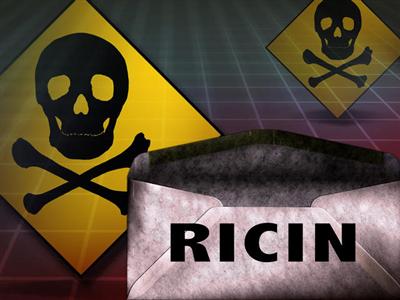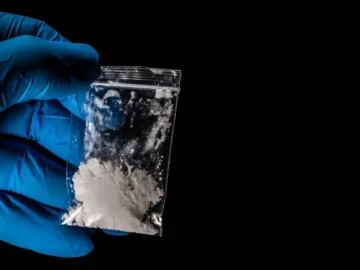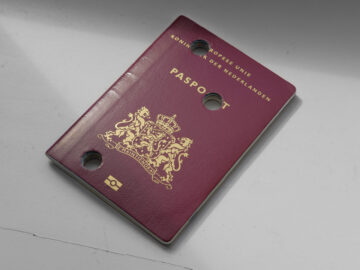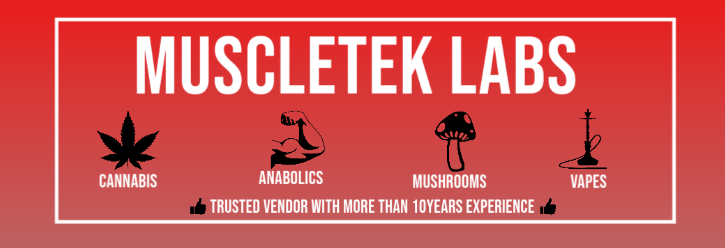Breaking Bad-inspired computer expert jailed for trying to buy enough ricin to kill 1,400 people from the Dark Web is freed
- Mohammed Ali was sentenced to prison in 2015 for trying to buy the poison
- He was rejected for release in 2020 because he was still a risk to the public
- But Ali, now 39, left prison in 2021 at the end of his eight-year sentence

A computer expert jailed after being inspired by the hit US show Breaking Bad to buy deadly ricin over the Dark Web has been released from jail despite being turned down by the Parole Board just a year before he was freed.
Mohammed Ali, then 31, was sentenced to eight years in prison in 2015 for attempting to buy the lethal chemical online after watching episodes of the TV series where it was used to poison a character.

Sentencing Ali at the Old Bailey, Mr Justice Saunders said at the time: ‘It seems to me that this is the sort of case where a deterrent sentence has to be passed.
‘Everyone needs to know that the possession of a chemical weapon is extremely serious and long prison sentences will follow.’
MailOnline can reveal that Ali, now 39, was rejected for release by the Parole Board in 2020 because it believed he was still a risk to the public, but left prison in 2021 at the end of his sentence.
A spokesman for the Parole Board said at the time of Ali’s last appeal rejection: ‘We can confirm that a panel of the Parole Board refused the release of Mohammed Ali following a hearing in 2020.
‘Parole Board decisions are solely focused on what risk a prisoner could represent to the public if released and whether that risk is manageable in the community.’
The Ministry of Justice confirmed that Ali, from Liverpool, has been freed and that there are ‘some conditions’ attached to his licence, although they declined to give details.
The software programmer was not charged or convicted of any terrorism offences despite long-held fears globally that the chemical would be used for an Islamic State motivated Bioterrorism attack.
On January 7, 2003, German police claimed they foiled a terror plot in the country after arresting a 32-year-old Iranian man suspected of having procured deadly poisons including cyanide and ricin to carry out an attack.
The Crown Prosecution Service did not believe Ali had any connections to a terrorist group.
He was serving a fixed determinate sentence and as he had behaved in prison he was released after having served the full term.
The Old Bailey, where Ali was tried, confirmed that he was not given any added police notification orders at the time of his sentencing in 2015.
It is not clear when the new conditions were attached to Ali’s release, but these restrictions are unlikely to be more than a police notification order, which can include providing personal information such as home address, date of birth, national insurance number, vehicle details and bank account details.
The limited amount of surveillance will be of concern as between January 10 and February 12, 2015, Ali struck a deal with a supplier to buy 500mg of ricin powder – enough to kill 1,400 people.
But the father-of-two was unaware that his source was in fact an FBI agent.
Ali was found guilty in July 2015 of attempting to possess a chemical weapon after five-and-a-half hours deliberation by the jury.
The judge commended law enforcement agencies in Britain and the US for ensuring that ricin did not get into Ali’s possession.

He told the court at the time: ‘I am satisfied that Mohammed Ali had no intention of disposing of ricin immediately. He intended to keep it.
‘That created a real risk that, at some stage in the future, he might decide to experiment with it or it fall into the wrong hands.’
Under the username Weirdos 0000, Ali struck a deal with a supplier on the ‘Dark Web’ – a largely untraceable internet illegal market – to buy 500mg of powder for $500 (£320), which is enough to kill 1,400 people.

Ali was unaware that his source Psychochem was in fact an FBI agent who tipped off police in England and substituted the consignment of ricin for harmless powder.
After Ali took the delivery of a toy car with five vials hidden in the battery compartment, police swooped in to arrest him at his home in Liverpool.
Under ultraviolet light, Ali’s face lit up showing that he had handled the package, which had been specially treated with a marker substance.

that he handled the package ordered off the Dark Web
Computer analysis showed that Ali first began trawling the internet for information on poisons such as abrin, ricin and cyanide in October 2014.
The court heard Ali approached the undercover agent in January 2015 with a private message: ‘Hi, would you be able to make me some ricin and send it to the UK?’
In a series of encrypted chats, they discussed the price of a lethal dose, discounts for bulk orders and repeat purchases, and ricin’s shelf life, jurors were told.
At one point Ali asked: ‘How do I test this ricin?’ and received the instruction: ‘You must test it on a rodent.’
Records showed that on February 4, 2015, days before the delivery, he made a payment of 2.1849 bitcoins, the online currency.
Around this time, Ali had made a to-do list on his computer which included the entries ‘paid ricin guy’ and ‘get pet to murder’, the court heard. He had also made a series of internet searches for chinchillas, animal rescue centres, rabbits and ‘pocket-sized pets’.

In his defence, Ali told jurors he was just curious and wanted to test the boundaries of the Dark Web, unaware that ricin was illegal.
He said: ‘I found lots of different items ranging from drugs, guns, other illegal items, and because I had been watching the Breaking Bad TV show I just had ricin in my mind.’
In mitigation, Joel Bennathan QC said: ‘Mr Ali has a large supportive family who care for him. They are distraught and appalled by the mess he has got into.
‘When he is released he will be supervised and will be occupied in order to make a living and looked after by his family.’
Ali, who was diagnosed with mild Asperger’s or autistic traits, stood impassively in the dock as the judge told him that possession of a chemical weapon was ‘much more serious that possessing a firearm’.
Afterwards, Detective Chief Superintendent Tony Mole, of the north-west counter-terrorism unit, said: ‘Ali attempted to buy a deadly poison and we can only speculate on what he planned to use it for, but in any case such as this, we take swift and decisive action.
‘Thanks to the vigilance of officers from a number of different law enforcement agencies, we were able to intervene before this man did get hold of such a deadly substance from a genuine seller.
‘I want to reassure our communities that the north-west counter-terrorism unit and local police are well aware of the potential dangers associated with internet activity on the “Dark Web”.’
Sue Hemming, from the Crown Prosecution Service, said after Ali was convicted: ‘Ricin is a naturally occurring poison which is fatal even in very small doses. Ali knew the dangers of ricin and had been researching poisons for months before he attempted to obtain it.
‘Today shows yet again that even in the case of crimes committed in the darkest corners of the internet, criminals can be caught and convicted.’
Found this interesting? Then check our main news page where you can find all articles related to Crypto, Crime, Darknet, Security and much more!




















